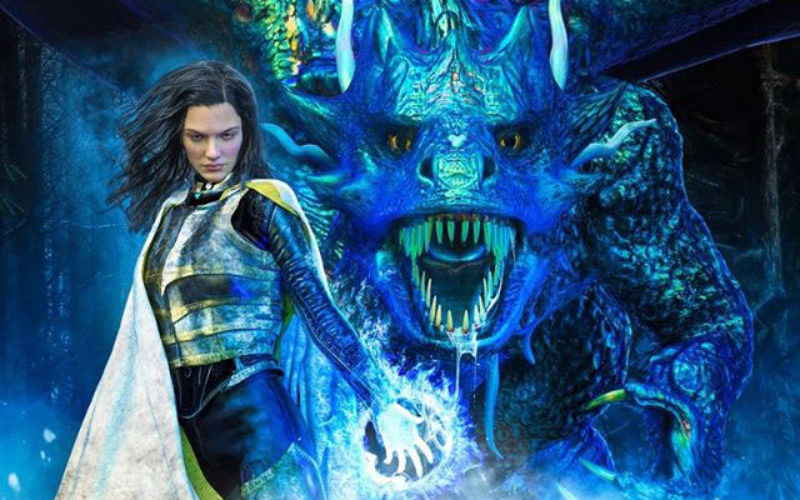BECCA MARTIN-BROWN
bmartin@nwadg.com
Rob Howell and I met at a wedding in Fayetteville, way back in 2005. Sounds perfectly normal, right? Not really. We met because we — and all our friends — played in the Society for Creative Anachronism, an international organization dedicated to the study of the best arts, sciences, combat, archery, etc., of the Middle Ages.
Long story short, we’ve been buddies ever since, and right now, when What’s Up! has the opportunity to feature a wider variety of arts outside of Northwest Arkansas, I want to proudly introduce you to my friend, the successful author. His most recent book is “When Valor Must Hold,” on which he shared editing duties with Chris Kennedy, but he is also the creator of the World of Shijuren and an author in the highly acclaimed Four Horsemen Universe.
Meet Rob Howell, a Kansan who now lives in the suburbs of Kansas City.

When Rob Howell isn’t writing about the World of Shijuren, he can often be found playing in the world of the Society for Creative Anachronism, an international nonprofit organization dedicated to the study of the best arts, sciences, combat, archery, etc., of the Middle Ages.
(Courtesy Photo)
Q. When you were a kid, what did you intend to do when you grew up?
A. Hmmm. I wasn’t really drawn to do anything once I knew I would never play for the Cowboys. I waffled on majors in college, going from theater to physics to history to journalism back to history. I loved gaming, and still do, but I never thought that could provide a living. Oddly, though, playing Dungeons & Dragons provided a ton of wonderful experience for what I am now. My writing style is to put characters in situations and see what they would do. Basically, I serve as dungeon master and player and record how things go.
Q. When did a love of books and writing take over?
A. My love of reading is old, probably older than I remember. One of my first memories is reading Hardy Boys books when I was 4 and 5. I read pretty much everything I could throughout my life. I actually read less now than ever because writing takes up the same mental energy. Mostly what I read now are what I call comfort food: Robert B. Parker, David Weber, C.S. Forester, Dick Francis, Isaac Asimov, Robert Heinlein, and, of course, Tolkien. Things I’ve read many times and just enjoy them instead of really reading them.
As for a love of writing, that actually happened mostly by need. I was at a crossroads. My wife left me, I couldn’t find a job because I was too educated, and I was fighting to do something with my life. I decided to write a novel — and when I was done, I decided to write another. Now here I am, finishing my seventh novel with a bunch of published short stories and a growing career.
I started writing at 45 so I didn’t have any time to waste. I treated it as a job from day one. I have never stressed about writing “The Great American Novel,” but rather I have always tried to provide quality entertainment with strong characters, interesting plots, and exciting events. The fact that I keep getting more and more faithful readers suggests I’m doing pretty well at that.
Q. How did you get published? What tips would you give others who aspire to doing this?
A. My advice is to write. Don’t stop. Don’t let people tell you it’s foolish. Yes, your first stuff won’t be your best stuff. It’s a skill, and you get better and better as you go along. However, you can’t get better unless you keep going.
Also, there’s one true way of writing, and it’s whatever works for you. Whether you’re a plotter or a pantser (someone who writes from the seat of their pants) or anywhere in between, whether you write at home or from a bar, listen to music or require absolute quiet, none of it matters unless it helps you write. Feel free to try whatever technique someone suggests, but if it doesn’t work for you, try something else. The ideal method changes for every writer.
Q. Talk about the different worlds of your novels and what inspired them?
A. Tolkien is, of course, an inspiration for Shijuren. As a medieval historian, I also draw upon all sorts of historical details to add depth to my stories. I love world-building and will often sit and make up towns and people that aren’t in stories but which might be at some point.
As for the Queen Elizabeth’s Own Foresters, the mercenary unit I write about in the shared Four Horsemen Universe started by Mark Wandrey and Chris Kennedy, I based that on family history, Canadian military history and then added villains and reasons for them to hate the Foresters. This unit started only because I was given an opportunity to write in that universe, and I had to write about something, so it’s as conscious a process as I’ve ever had.
History shapes quite a bit of my writing. Obviously, this is true for the alternate history stories I’ve written but just as much for everything else. I also look at poetry.
Q. Do your characters “mind” you or do they take off on their own agendas?
A. Good characters should have their own agendas. They are, after all, the heroes of their own stories. Quite often, characters will do the thing that’s right for them, and that’s far more important than anything I had initially planned. This is one reason I’m a pantser.
My first novel changed greatly when a character basically changed everything for me. It went from a whodunit to a whydunit and that was a much stronger story.
Q. How do you make your living as an author? What does that life look like?
A. I’m making progress. The life of a professional writer is basically to keep writing. Each year has gotten better. I’m getting a reputation as a consistent producer of high-quality content, and more and more publishers are asking for my stuff. You can make a living as a writer, but it takes time to get there. and it takes a lot of work. You’re not likely to write one novel and make a million overnight. It can happen, but it’s the exception. This is a job and a career, not simply a creative endeavor.
Q. What’s next for you as an author? What do we have to look forward to?
A. “None Call Me Mother,” which concludes a trilogy in Shijuren, comes this summer.
__
Go Online!
Rob Howell
Amazon author page: https://www.amazon.com/-/e/B00X95LBB0
Website: http://robhowell.org/
Blog: http://robhowell.org/blog/






